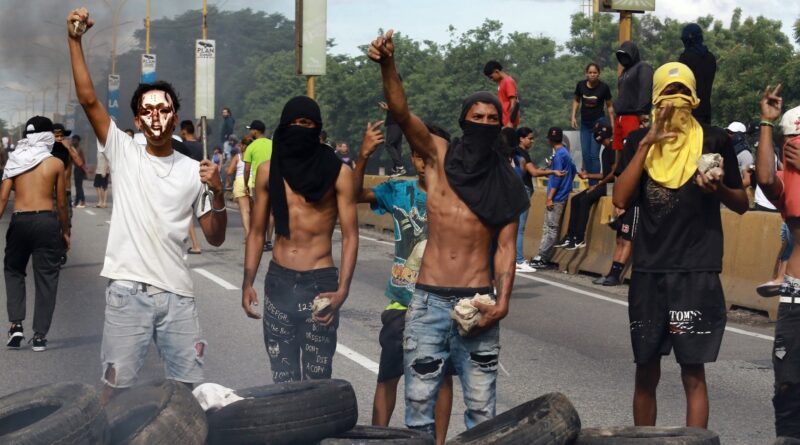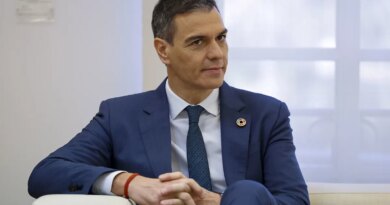Pressure mounts on Maduro, in Venezuela and abroad, to release vote results
Venezuelan President Nicolás Maduro is facing mounting pressure, at home and abroad, to release evidence that would verify the results of Sunday’s presidential election, which both he and his main challenger claim to have won.
Thousands of people have been protesting since Monday when Maduro and opposition candidate Edmundo González declared victory.
It’s estimated that at least 12 people have died and 92 injured as a result of the protests, according to the National Hospital Survey, a large-scale data collection organization. More than 1,000 people have also been detained, according to Venezuelan Attorney General Tarek Saab.
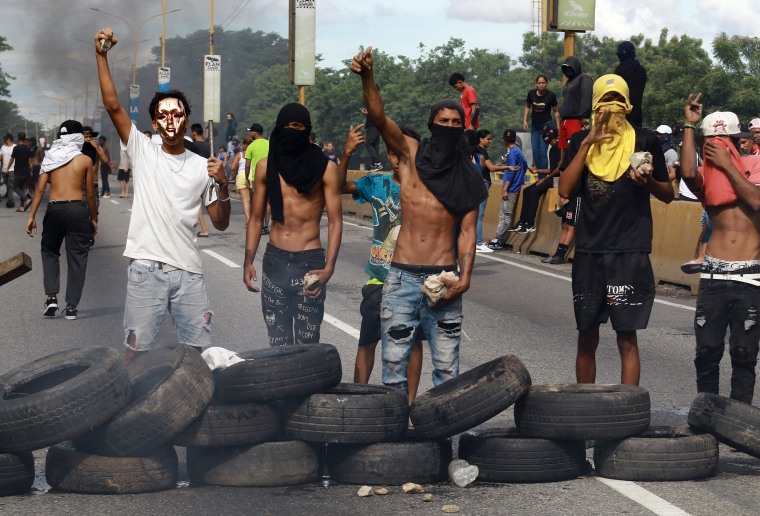
On Wednesday, Maduro told reporters his party was ready to show all of the electoral tally sheets. He asked Venezuela’s Supreme Court, which is loyal to his regime, to conduct an audit of the presidential election after the opposition challenged the result. That’s the same court that banned the main opposition leader, María Corina Machado, from being on the ballot in January. González then emerged as the opposition’s surrogate candidate in May.
On Monday, election authorities loyal to Maduro declared he had won 51% of the vote, but they have not yet released the precinct-by-precinct counts that would verify the result. At the same time, the opposition said González had won based on independent exit polls and official paper tallies collected at voting booths by party monitors on Election Day.
NBC News had access to a restricted site in which the Venezuelan opposition created what it said was “an independent, civil society-led” vote tabulation initiative to produce a “verifiable and scientifically accurate” estimate of the vote count based on figures extrapolated from the official tally sheets their party monitors received on Election Day.
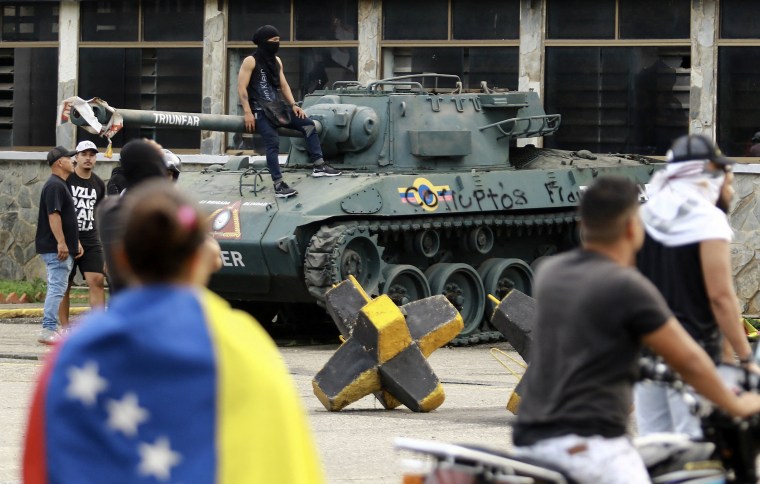
As of Wednesday morning, their count showed González had 66.12% of the votes, compared to 31.39% for Maduro. The count is updated as more source data is received and validated.
More than 80% of paper tally sheets from polling booths nationwide have already been accounted for, Leopoldo López, an exiled opposition leader, told Noticias Telemundo on Tuesday evening.
The information on the site has also been shared with foreign governments and international observers who have been monitoring Venezuela’s election, López added.
The opposition also launched a public website in which Venezuelans can enter their ID numbers to see if the tallies from their precinct have already been counted, according to Machado, the driving force behind the opposition movement.
The opposition’s tally mirrors the findings of U.S.-based firm Edison Research, which conducted independent exit polls in Venezuela Sunday. Their results estimate Gonzalez obtained 65% of the votes and Maduro got 31%, Rob Farbman, vice president of Edison Research, told MSNBC.
The Venezuelan government’s official election website was down for a third consecutive day on Wednesday.
González, Machado and López, all members of the opposition, insist that the release of those detailed voter tallies would show that Maduro lost the election.
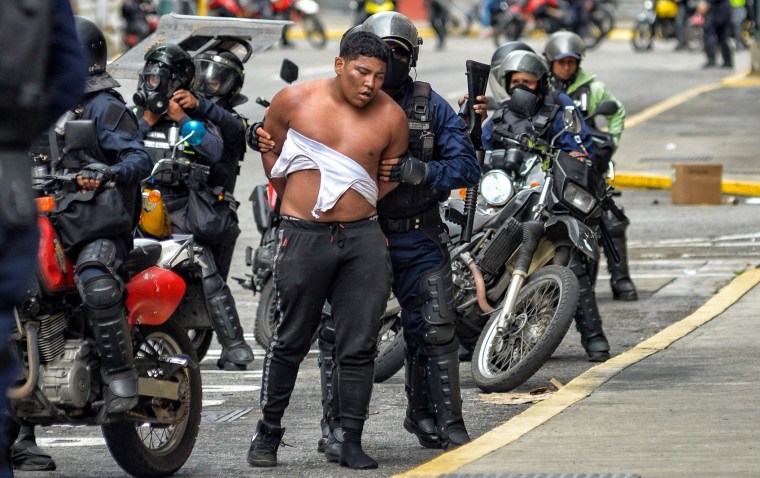
The Carter Center, an independent U.S.-based institution that evaluates elections, had been invited by Venezuela’s election commission to observe the presidential election on Sunday.
The organization has since been unable to verify the results, blaming election authorities for a “complete lack of transparency” in declaring Maduro the winner without providing any individual polling tallies.
Peru became the first nation to recognize González as Venezuela’s president-elect. Peruvian Foreign Minister Javier González-Olaechea accused Maduro of being “a person who wants to perpetuate himself in power through dictatorship.”
As a result, Venezuela severed diplomatic ties with Peru; Venezuelan Foreign Minister Yvan Gil accused Peru of making “reckless statements … which ignore the will of the Venezuelan people and our Constitution.”
As part of his efforts to rally his supporters, Maduro is calling on those who live in working-class communities to use an app originally meant to help them access to public services such as food, water and medicine, to anonymously report on fellow Venezuelans who have participated in protests or served as election observers for the opposition.
Jorge Rodríguez, the head of Maduro’s campaign and the president of the National Assembly — who serves as the chief negotiator in dialogues with the U.S. and the opposition — insisted Wednesday that Maduro is the indisputable winner of the election.
Rodríguez also labeled opposition leaders as violent “fascists” and called for the arrests of Machado and González. It’s unclear if official arrest warrants have been placed on them, but Costa Rica has already offered asylum to both Machado and González.
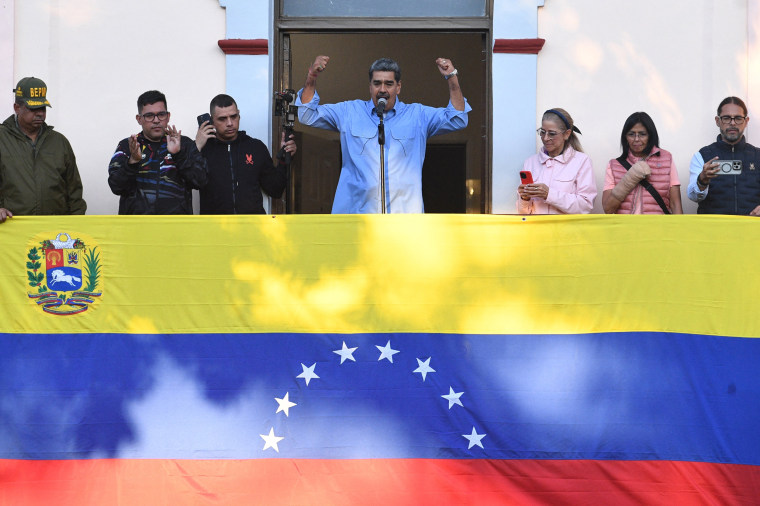
Eighty percent of Venezuela’s population is in poverty amid the country’s economic collapse and an estimated 8 million Venezuelans have migrated to other Latin American nations and the U.S., creating the largest displacement crisis ever.
Support for Maduro and Chavismo, the socialist-inspired political movement started by the Maduro’s mentor and former president Hugo Chávez has “declined dramatically,” Renata Segura, program director for Latin America at International Crisis Group, said.
Segura said that a growing number of people who believed in Chavismo think that those in the government “are only there to defend their personal interests,” adding that, even those who are critical of the opposition think that it would be “almost impossible” for Venezuela to survive six more years of Maduro.
Colombian President Gustavo Petro on Wednesday called on Maduro, a close ally, to release polling center-level results as it is usually done in Venezuelan elections.
“The serious doubts that have arisen around the Venezuelan electoral process can lead its people to a deep violent polarization with serious consequences of permanent division,” Petro said in a post on X. “I invite the Venezuelan government to allow the elections to end in peace, allowing a transparent vote count, with the counting of votes, and with the supervision of all the political forces of its country and professional international supervision.”
Mexican President Andrés Manuel López Obrador said Wednesday he was refraining himself from calling out possible fraud in Venezuela’s presidential election because “there is no evidence.”
He added, “We’re going to wait,” until official voting tallies were released.
On Tuesday, President Joe Biden and Brazilian President Luiz Inacio Lula da Silva also urged Venezuela to release the vote tallies.
Russia, Cuba, Honduras and Bolivia have accepted Maduro as the winner.
For more from NBC Latino, sign up for our weekly newsletter.

